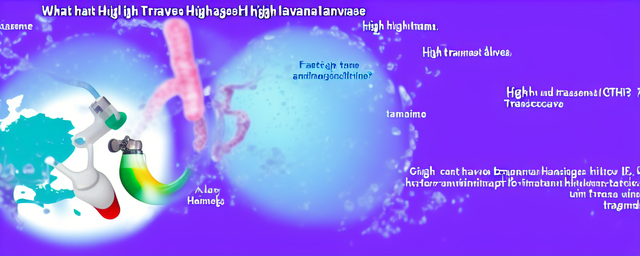
转氨酶高有什么危害
原|2024-04-26 12:00:59|浏览:34
Elevated levels of transaminases, also known as liver enzymes, can indicate liver damage or disease. The two main transaminases that are measured in a liver function test are alanine aminotransferase (ALT) and aspartate aminotransferase (AST). When these enzymes are elevated, it can be a sign of liver inflammation, injury, or other liver-related issues.
Having high transaminase levels can pose several risks and potential consequences:
1. Liver Damage: Elevated transaminase levels often indicate liver damage, which can be caused by various factors such as alcohol abuse, viral hepatitis, fatty liver disease, or certain medications. If left untreated, ongoing liver damage can progress to more severe conditions like cirrhosis or liver failure.
2. Increased Risk of Liver Disease: Persistently high transaminase levels can increase the risk of developing liver diseases such as hepatitis, non-alcoholic fatty liver disease (NAFLD), or autoimmune liver diseases.
3. Impaired Liver Function: The liver plays a crucial role in detoxifying the body, producing proteins, and regulating metabolism. When the liver is damaged, its ability to perform these functions efficiently can be compromised, leading to various health issues.
4. Potential Complications: Liver damage and dysfunction can lead to complications such as jaundice (yellowing of the skin and eyes), ascites (fluid buildup in the abdomen), hepatic encephalopathy (brain function impairment), and an increased risk of bleeding and infections.
5. Monitoring and Treatment: High transaminase levels require medical attention and monitoring to identify the underlying cause and prevent further liver damage. Treatment may involve lifestyle changes, medication, or interventions to address the specific liver condition.
In conclusion, elevated transaminase levels should not be ignored as they can indicate underlying liver problems that may have serious consequences if left untreated. It is important to consult a healthcare provider for proper evaluation, diagnosis, and management of high transaminase levels to prevent potential risks and complications associated with liver damage.
猜你喜欢
- 茶的分类及代表品种
- 六大茶类的代表名茶分别有
- 茶的类型和代表
- 六大茶叶的分类及产地
- 庙的分类及代表
- 藻的分类及其代表
- 茶的分类及代表茶品特点
- 茶的分类及代表茶
- 简述茶类的分类及其代表性名茶
- 六大茶类的分类及代表茶
- 动物分类及代表
- 糖的分类及代表
- 茶的分类及代表茶叶
- 茶的分类及代表图
- 茶的分类及代表作
- 茶器按质地的分类及代表茶器
- 茶的分类及代表名茶教学设计
- 简述茶的分类及代表性名茶
- 请写出乌龙茶的分类及代表茶
- 法国雅文邑白兰地系列
- 雅文邑白兰地介绍
- 1952年法国雅文邑白兰地
- 法国雅玛邑白兰地
- 纽波利顿獒
- 法国犬品种
- 南非獒犬的优缺点
- 波尔多獒犬寿命
- 波兰狩猎犬
- 波尔多犬和罗威纳犬对比
- 波尔多犬和杜高对比
- 世界十大凶犬
- 护卫犬排行榜前十名
- 大红袍怎么泡效果好
- 大红袍怎么泡不开
- 大红袍怎么泡茶
- 大红袍怎么泡出来没颜色
- 大红袍怎么泡不苦
- 大红袍怎么泡多久
- 大红袍怎么泡才正确的特点
- 大红袍怎么泡没有柴味儿
- 大红袍怎么泡放多少合适
- 花香大红袍怎么泡
- 大红袍怎么泡茶好
- 大红袍是怎么泡的
- 大红袍怎么泡水好喝
- 大红袍用玻璃杯怎么泡
- 大红袍怎么泡味道浓一些
- 十大排名果花茶
- 十大花茶组合排名
- 十大花茶品种大全
- 十大花茶功效
- 十大花茶销量排行榜
- 十大花茶有哪些
- 十大花茶品种
- 十大花茶推荐
- 十大花卉排行榜
- 十大花卉
- 十大花茶调理内分泌
- 九五至尊秦昊明月关山
- 红茶冲泡工艺
为你推荐






































































